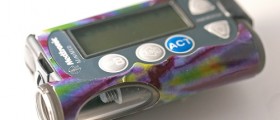
Of course, it sounds like this new artificial pancreas could be useful for many Type 1 Diabetes sufferers. Why the special focus on pregnant patients? People with this type of diabetes are not able to break down sugar, something which can lead to problems ranging from destroyed blood vessels, to organ failure and eventually death. In pregnancy, Type 1 Diabetes is worsened due to hormonal changes. Keeping blood glucose levels within an appropriate range becomes a huge struggle, and particularly during the night. The artificial pancreas "guinea pigs" were shown to have maintained nearly normal blood glucose levels, even at night! That is a great achievement because babies whose mothers have Type 1 Diabetes are five times more likely to be stillborn than those of low-risk mothers, all because of the danger of extremely high blood sugar levels. The director of the charity Diabetes UK said about the trial: "It's a fantastic example of how existing technologies...can be adapted and developed to benefit as many people with diabetes as possible." It is, isn't it? Also see diabetes in pregnancy and screenings to prevent diabetes during and after pregnancy?

















Your thoughts on this
Loading...